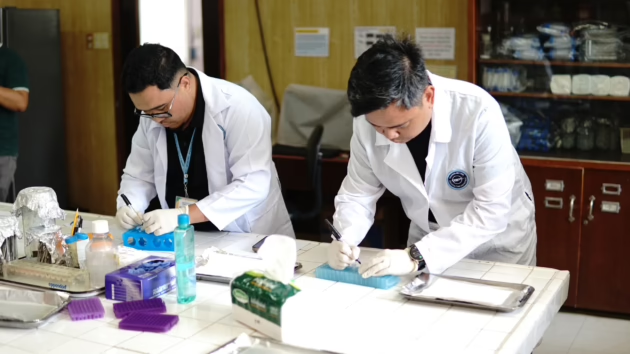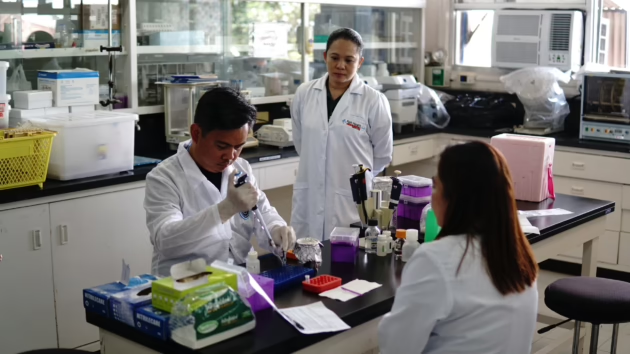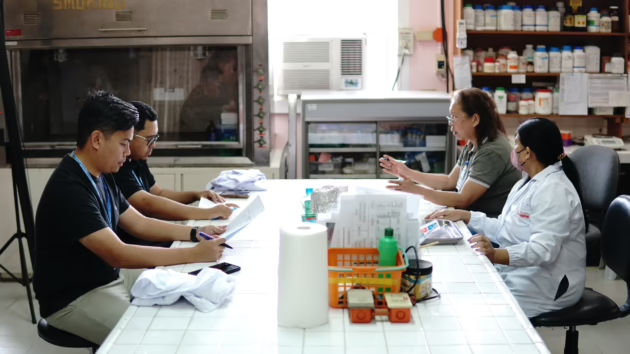To advance Brunei Darussalam’s capabilities in aquatic animal disease diagnostics particularly using polymerase chain reaction (PCR) techniques, its Department of Fisheries (DOF) enrolled two staff in SEADEC/AQD’s customized training course on Aquatic Animal Disease Diagnosis Using PCR at the Tigbauan Main Station in Iloilo, Philippines.
From 21 to 25 April 2025, Mr. Abdula Salam Wafi Bin Haji Md Diah, head of the Aquatic Animal Health and Laboratory Services Centre, along with Mr. Md Amalulariffin Bin Abd Azis, senior fisheries assistant, learned from a team of SEAFDEC/AQD scientists and experts through lectures in viral and bacterial diseases of crustaceans, serological and DNA-based diagnostic techniques, and parasitic diseases affecting crustaceans.
“We started with comprehensive lectures that provided a solid foundation for understanding current health challenges in aquaculture, particularly in shrimp,” shared Mr. Abdula Salam.
To supplement theoretical lessons, the trainees engaged in hands-on practical sessions, including shrimp sample processing for disease diagnosis, DNA extraction, master mix preparation for real-time polymerase chain reaction (RT-PCR), and the retrieval and interpretation of results.
“The practical sessions were valuable, as we were guided through the entire qPCR diagnostic workflow. The structure and delivery of the course reflect the high standards of SEAFDEC/AQD,” he added.
During the closing program held on the 25th at the Training and Information Division Conference Room, Dr. Leobert de la Peña, head of the Research Division and one of the lecturers, addressed the participants: “Through lectures, hands-on laboratory work, and collaborative discussions, you have not only learned how to detect pathogens using PCR techniques but have also become stronger advocates for biosecurity, responsible aquaculture, and early disease intervention.”
“I hope you will continue to apply the skills you’ve acquired here, share what you’ve learned, and contribute to the ongoing fight against diseases in our aquatic populations,” Dr. de la Peña added. “The power of PCR as a diagnostic tool is immense, but it is only through collective action and knowledge sharing that we can truly make a difference.


 SEAFDEC/AQD Southeast Asian Fisheries Development Center | Aquaculture Department
SEAFDEC/AQD Southeast Asian Fisheries Development Center | Aquaculture Department



